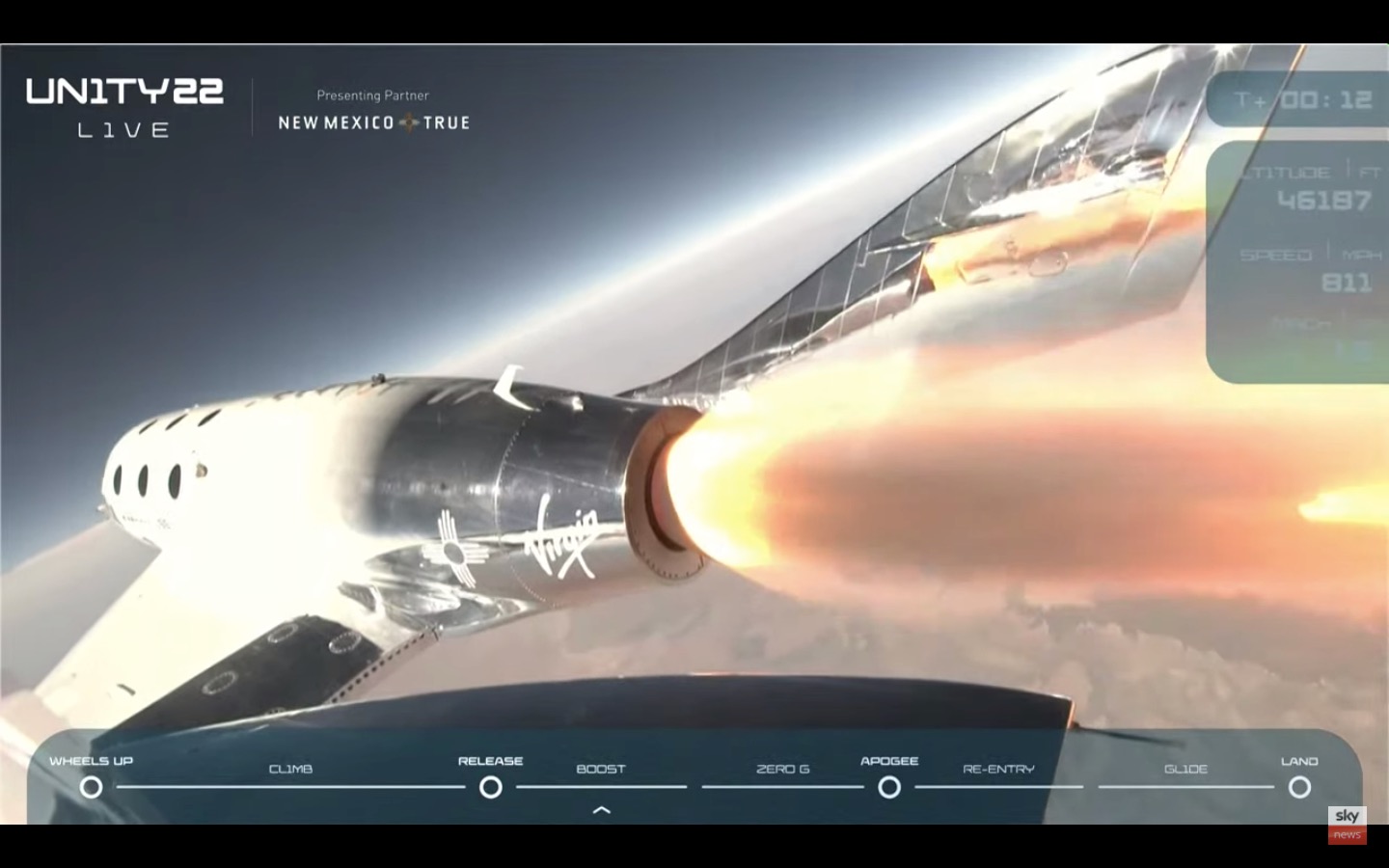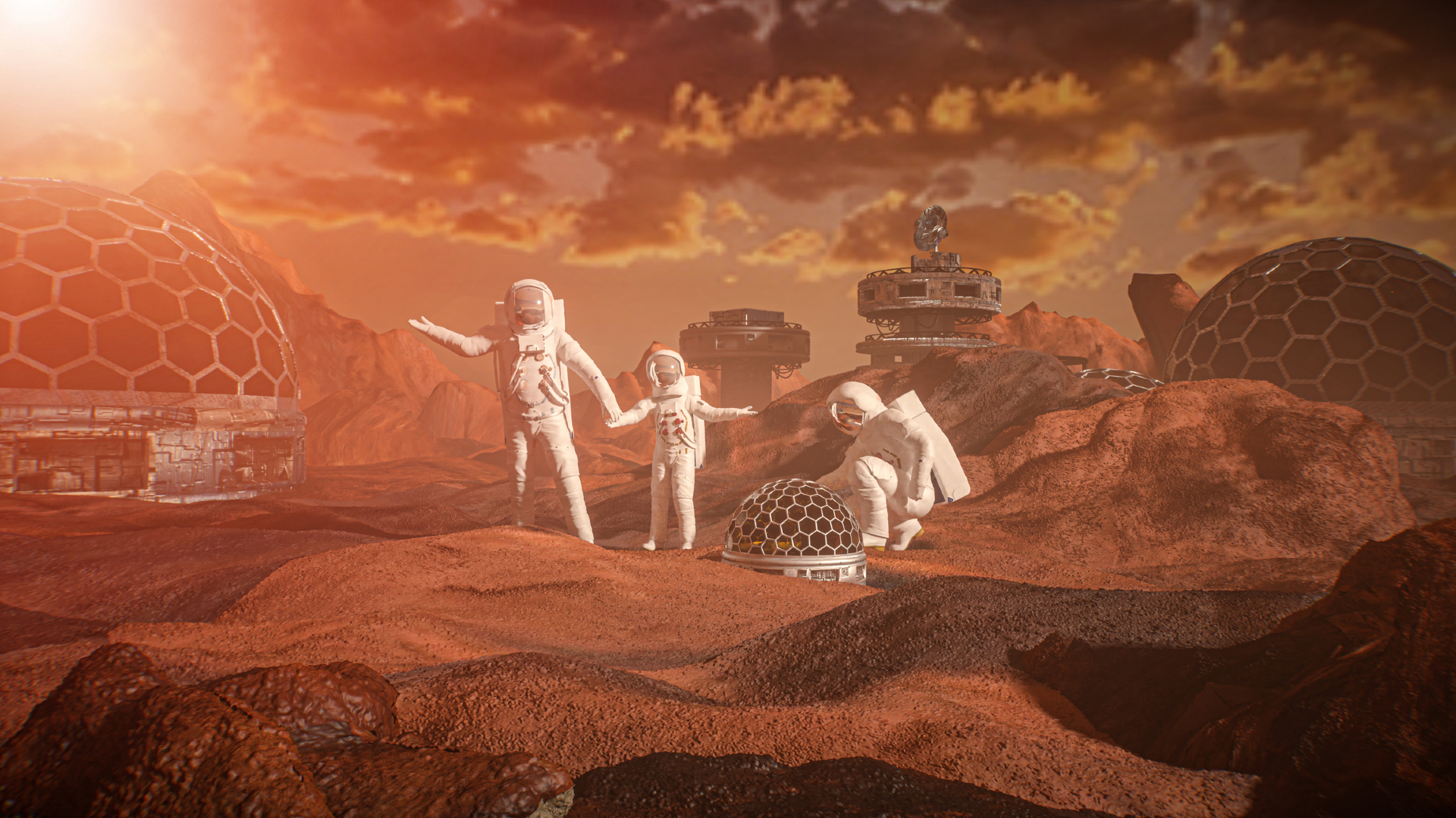Virgin Galactic pushes 1st commercial passenger flight to spring 2023
The delay is 'due to extended completion dates within the mothership enhancement program.'

Breaking space news, the latest updates on rocket launches, skywatching events and more!
You are now subscribed
Your newsletter sign-up was successful
Want to add more newsletters?

Delivered daily
Daily Newsletter
Breaking space news, the latest updates on rocket launches, skywatching events and more!

Once a month
Watch This Space
Sign up to our monthly entertainment newsletter to keep up with all our coverage of the latest sci-fi and space movies, tv shows, games and books.

Once a week
Night Sky This Week
Discover this week's must-see night sky events, moon phases, and stunning astrophotos. Sign up for our skywatching newsletter and explore the universe with us!

Twice a month
Strange New Words
Space.com's Sci-Fi Reader's Club. Read a sci-fi short story every month and join a virtual community of fellow science fiction fans!
Virgin Galactic is pushing its first space tourist mission back by another three months.
Suborbital space tourism provider Virgin Galactic announced Thursday (Aug. 4) that it will delay the start of its commercial service once again to the second quarter of 2023, due to upgrade delays for the company's mothership, VSS Eve.
Virgin Galactic sends paying passengers to space with two vehicles. It uses the carrier aircraft VMS Eve, which brings the spaceship VSS Unity to an altitude of about 50,000 feet (15,000 meters). At that point, Unity drops away and soars to suborbital space using rocket engines.
Upgrade work on Eve was previously pushed back due to pandemic-related supply chain issues. That said, Virgin has been making other infrastructure announcements in recent weeks. An example is a new astronaut training facility near Spaceport America, Virgin's primary launch site.
In photos: Virgin Galactic's 1st fully crewed spaceflight with Richard Branson
In June, Virgin also signed a deal with Boeing subsidiary Aurora Flight Sciences to build two new motherships to enter service in 2025, to support a fleet of new "Delta-class" space planes scheduled to fly once a week. Paying customers may fly on the Delta fleet as soon as 2026.
"While our short-term plans now call for commercial service to launch in the second quarter of 2023, progress on our future fleet continues and many of the key elements of our roadmap are now in place to scale the business in a meaningful way," Virgin CEO Michael Colglazier said in a statement announcing the company's second-quarter financial results for the fiscal year 2022.
Breaking space news, the latest updates on rocket launches, skywatching events and more!
Virgin reported a net loss of $111 million in Q2 compared with $94 million in the second quarter of 2021, with cash on hand at $1.1 billion as of June 30.
Other announcements in the quarter include a Delta manufacturing facility in Mesa, Arizona to build up to six spaceships a year starting in late 2023, and a partnership with luxury travel company Virtuoso to offer a few reservations among Virgin's first 1,000 seats. (Around 800 individuals were wait-listed already before this deal, Virgin has said.) A seat on VSS Unity currently costs $450,000.
Blue Origin, the biggest competitor of Virgin Galactic for the suborbital space market, has flown six times to space with passengers on board. The most recent flight coincidentally occurred on the same day as Virgin's results, on Aug. 4, sending six more people to space aboard mission NS-22.
VSS Unity has flown to space four times to date, most recently in July 2021. But none of those missions were operational tourist flights.
Follow Elizabeth Howell on Twitter @howellspace. Follow us on Twitter @Spacedotcom or Facebook.

Elizabeth Howell (she/her), Ph.D., was a staff writer in the spaceflight channel between 2022 and 2024 specializing in Canadian space news. She was contributing writer for Space.com for 10 years from 2012 to 2024. Elizabeth's reporting includes multiple exclusives with the White House, leading world coverage about a lost-and-found space tomato on the International Space Station, witnessing five human spaceflight launches on two continents, flying parabolic, working inside a spacesuit, and participating in a simulated Mars mission. Her latest book, "Why Am I Taller?" (ECW Press, 2022) is co-written with astronaut Dave Williams.
